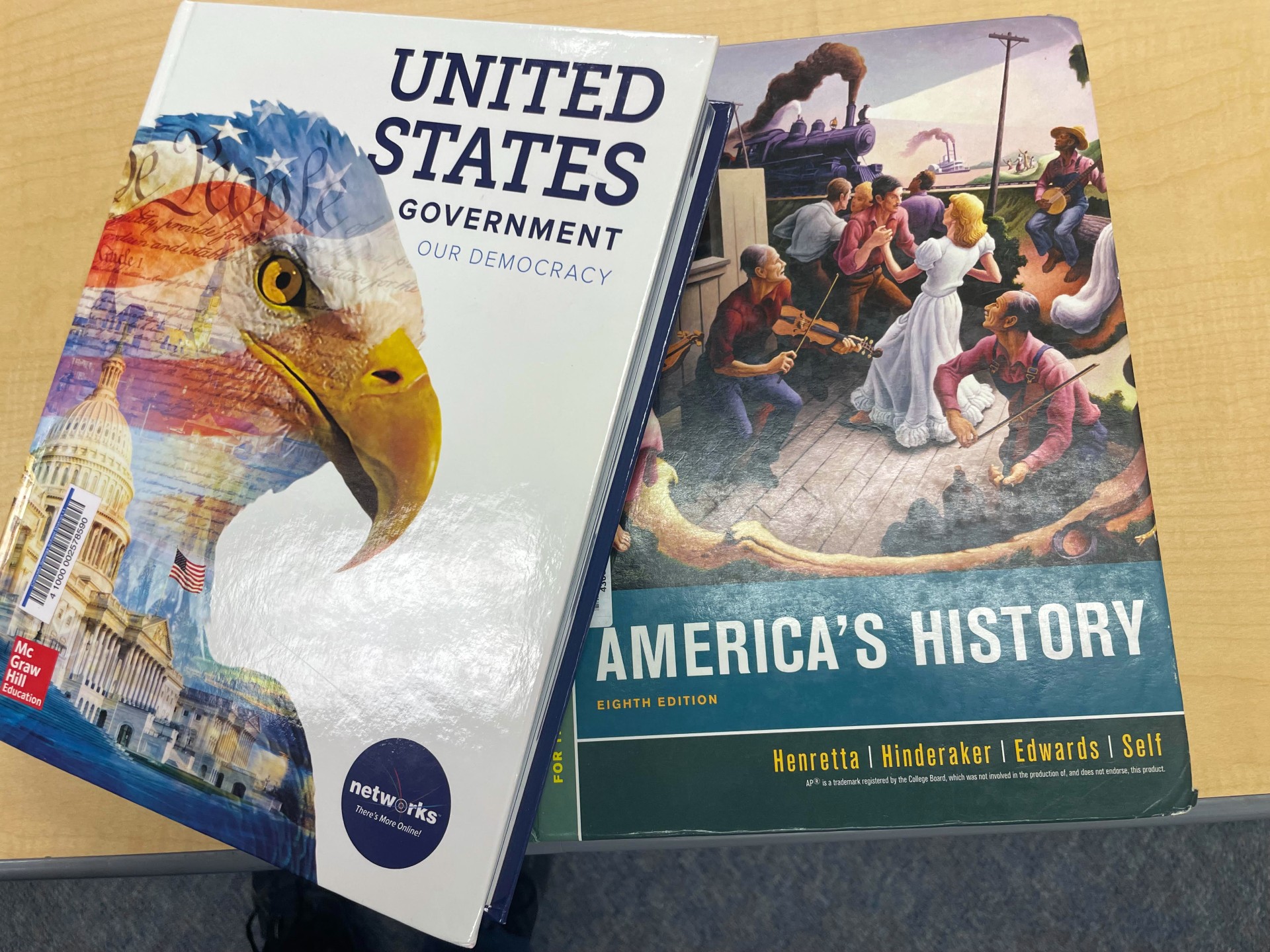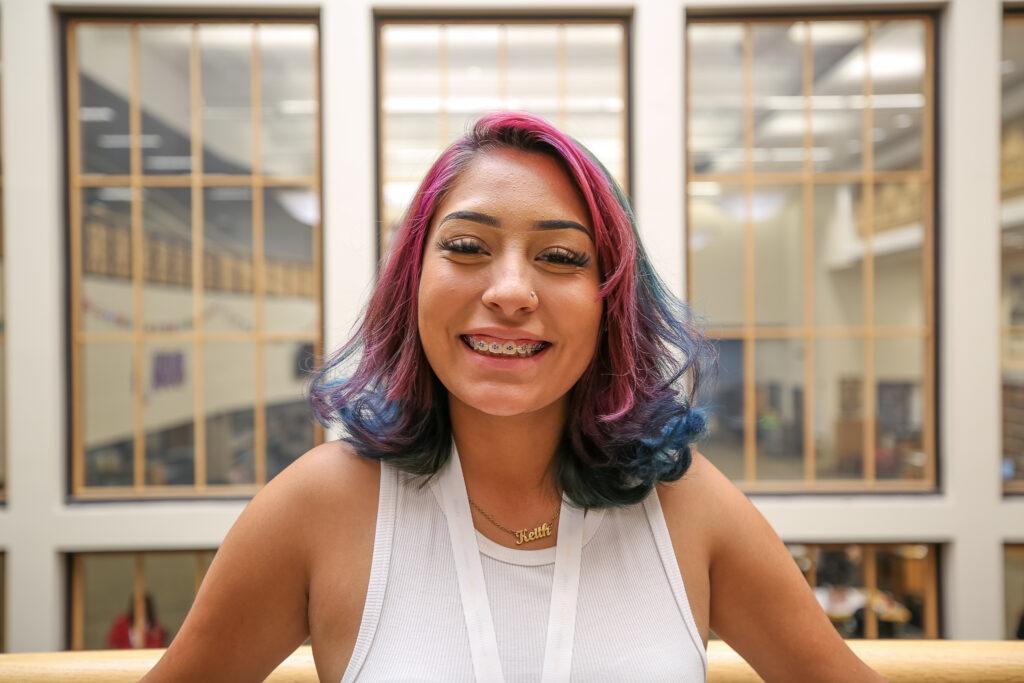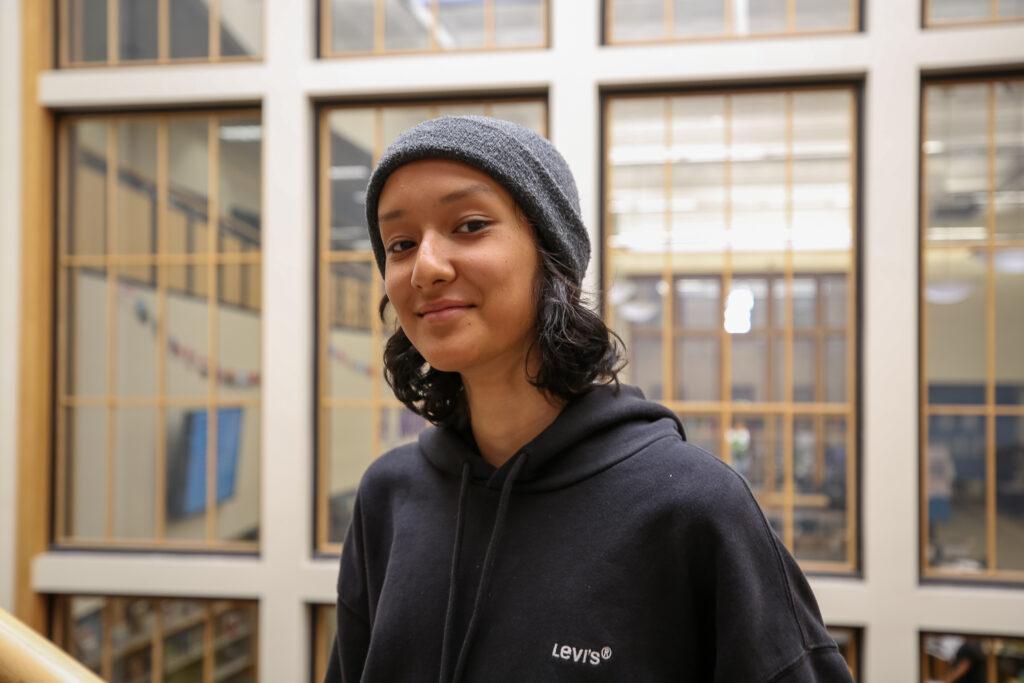
When Brylynn Hurtado was a little girl, she didn’t like being Native American. Like many young students of color, she felt shame and embarrassment about her cultural identity.
"I remember learning about the Mayflower and the first Thanksgiving but not about how my people were enslaved, tortured and killed off by the same people we decide to praise."
She’s now a senior in Denver Public Schools, and through her own journey, has become a proud Indigenous young person. Hurtado wants State Board of Education members to understand how critical it is to have social studies standards and curriculum that represents everyone’s heritage, culture and history, “the good, the bad, and the ugly.”

She’s involved in a research project at her school that found most students of color feel underrepresented and unheard, feel disengaged from school and lack a presence in advanced courses.
“We must not tiptoe around words and phrases that describe who students are and what makes them them. We must encourage and empower students to be proud of who they are and where they come from.”
It has been an exhausting and upsetting few months for many in Colorado’s minority communities.
They’ve been fighting for more inclusive social studies standards that teach the multiple histories, cultures, and social contributions of diverse peoples. That’s the directive, too, of a 2019 Colorado law.
But a committee recommending updates to the state’s social studies standards pulled back from its original revisions, taking out references to LGBTQ people below grade 4 and stripping multiple references to African Americans, Latinos and other marginalized groups in all grades. They were responding to criticism from some board members and some in the public that the references were unnecessary and in some cases age-inappropriate. The State Board of Education is taking up the issue Thursday.
A coalition of groups led by Great Education Colorado, alongside a group of state lawmakers, is pressing the board to restore the original revisions. Before the revisions were stripped, the coalition had sent nearly 2,000 signatures on a petition to the board in favor of the original revisions.
"We want all students to learn the honest and comprehensive history of our nation, along with the critical thinking skills that will serve them as citizens of our democracy their entire lives,” said Valeria Contreras of Great Education Colorado.
Another group — Colorado Statewide Parent Coalition — is rallying with parents outside the board meeting Thursday morning, to encourage the board to fully restore the committee’s original recommendations.
“Trying to change history because some people are uncomfortable with people who are different from them, that's not what we're about in this country,” said executive director Lorena Garcia.
Thursday’s meeting promises to be a high-profile debate as some board members attempt to restore some of the original recommendations that spell out references to specific ethnic and racial groups, as well as LGBTQ people.
“The majority of constituents we have heard from have clearly indicated they want the cuts to the standards made in June of 2022 restored,” said board member Lisa Escárcega. She and board member Karla Esser have proposed restoring some of the references to LGBTQ people and specific racial and ethnic groups.
That includes restoring 14 references LGBTQ people (27 were originally removed) and returning about 14 references to specific racial and ethnic groups (29 were deleted), as well as adding Hawaiian and Pacific Islander to the list of groups.
For example, in a first-grade standard in a section about the meaning of various civic symbols, Escarcega proposes adding the LGBTQ Pride Flag to the list.
Board member Esser proposes restoring LGBTQ and religious minorities in a standard about the political and social changes that expand or restrict the rights of citizens.
In a letter to the board, members of the committee said they worked hard to respond to criticisms from the board that they were emphasizing the negative in American history. They said they worked “explicitly to find a balance between the positive attributes of our nation’s past and the negative realities for many groups and individuals throughout our history.”
The voices that have been missing from much of the debate are the voices of students of color.
They want to express how their engagement in academics goes up when they learn about people who look like them, especially positive examples from history.
Maryam Rahimie identifies as Hazara Afghan and a number of other identities.
“In my learning, I'm used to being clumped together with other minorities. I'm used to learning about myself from a white perspective. I'm also used to not being mentioned at all.”

She said she doesn’t remember much about seventh-grade English or eighth-grade science but remembers vividly everything about her sixth-grade social studies. Social studies is her favorite subject.
“I would go home and with wide-eyed excitement, I’d tell my family of the things we learned. How the teacher told the class about something that mattered to me and was a part of me … Social studies was the time for myself and my peers to think critically about the issues that affect us. When my identities were mentioned it meant everything and more to me.”
She wants the board to restore the original revisions. She said the language is already too vague.
“Eradicating mentions of equity, gender identity, and race and racism from our standards is deeply harmful. It’s an effort to erase the struggles of children.”
Debate is also expected on the word 'fascist' and which genocides should be in the standards.
The issue of what and how Colorado students learn about “genocides” and “holocausts” is another part of the roiling debate over social studies standards. On Thursday, one board member will try to clarify that the German Nazi Party was a fascist political party.
Another board member, Steve Durham, was adamant during previous board meetings about stripping the word Nazi from references to the Holocaust and instead referring to Hitler’s party by its full name, the National Socialist German Workers Party. The word “Nazi” was eventually restored, according to a Chalkbeat analysis, after lobbying from Jewish community members.
However, Chalkbeat’s report includes historians stating that the claim that Nazis were socialists is false. Board member Rebecca McClellan proposes inserting the word “fascist” before the full name of the party.
Durham was also vociferous about overriding the recommendations of a committee of history teachers and experts for the new standards. In the current version, all the examples of genocide and holocausts are in some way connected to "communism" or "socialism," ignoring that genocides have been committed by right-wing political adherents.
McClellan proposes restoring the genocides that have taken place in Rwanda, Darfur and Bosnia. Board member Angelika Schroeder will try to include the Sand Creek Massacre in a section of the standards.
Three history experts from the revision team that spent more than a year working on its recommendations sent a letter to the board expressing their concern about political bias and historical inaccuracies in the standards that were approved by the board. For example, while the events in China during the Maoist revolution were mass atrocities, they do not meet the historical definition of genocide as Durham argued.
“Our state standards would be mandating that our educators teach factually inaccurate information to all Colorado high school students,” they wrote.
They also expressed dismay that the board failed to consider an additional history standard; they recommended that they felt better reflected the law, which includes “other acts of mass violence such as the political, economic, and social policies of Joseph Stalin and Mao Zedong’s Cultural Revolution and the resulting Great Famine.”
Finally, there could be another attempt by board member Debora Scheffel to replace the social studies standards with a national set of standards, the conservative American Birthright standards. They are included in the board documents as a topic for possible discussion Thursday. The board rejected the Birthright standards on a 4 to 3 vote last month.









